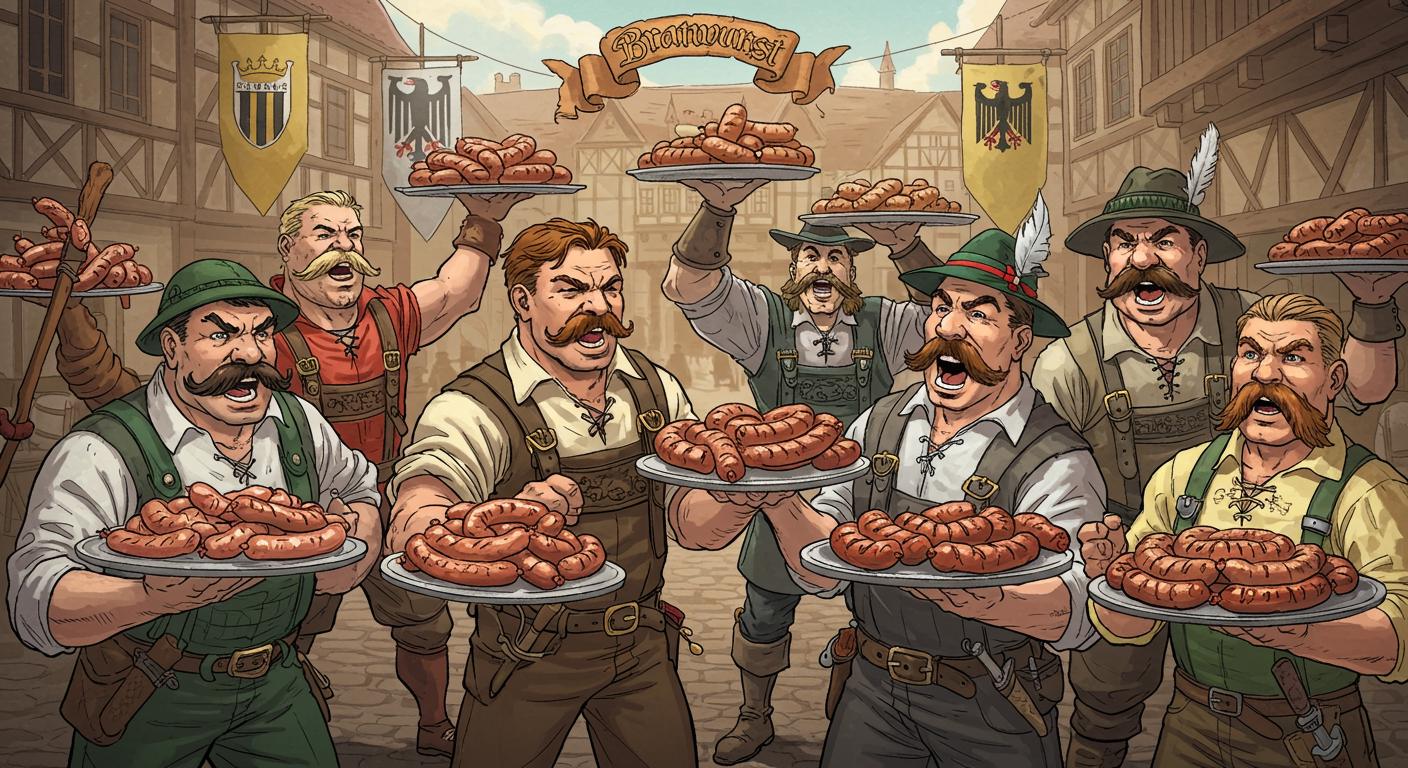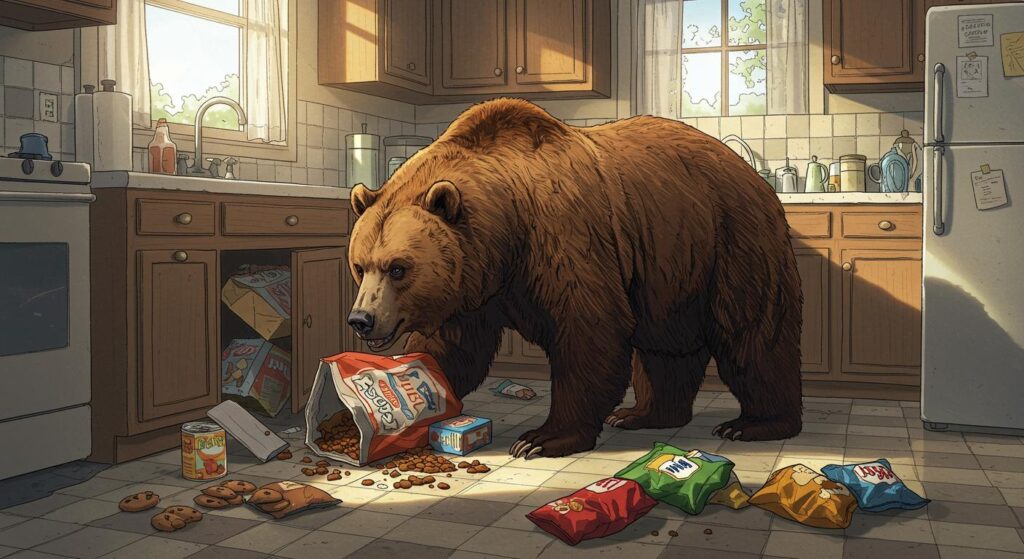Sometimes the universe delivers exactly what you didn’t know was missing from your day. Case in point: a full-blown, meticulously documented dispute over who can claim bragging rights to the world’s first bratwurst stand. As a BBC article on the bratwurst dispute reports, the venerable states of Bavaria and Thuringia are currently embroiled in a historical tug-of-war that would be the stuff of legends—if those legends came encased in crispy pork and served with homemade mustard.
A Battle for Bratwurst Bragging Rights
Until recently, Die Wurstkuchl, situated picturesquely on the Stone Bridge in Regensburg, Bavaria, has been the undisputed local hero in the world of sausage. The tavern has built its reputation—along with probably no small amount of tourism—on its claim of being the “oldest Bratwurst stand in the world,” with records tracing a food stall on that very bridge all the way back to 1378.
But leave it to historians in Erfurt, Thuringia, to dig a little deeper. According to details highlighted by the BBC, these archival sleuths have produced a document from 1269 that appears to reference not only a meat-roasting stand (the poetically named Brathütte) but even a designated roasting pan. The upshot? Thuringia may have been grilling sausages more than a century before Regensburg fired up its first coals.
Of course, history rarely offers clean victories—or neat sausages. Though the document exists, historians are still searching for the precise site in Erfurt where this early stand once sizzled. No business in Erfurt has yet donned the sash of “world’s oldest bratwurst stand,” possibly due to the German equivalent of “pics or it didn’t happen.”
Ancient Recipes, Modern Rivalries
It seems this is neither Bavaria’s nor Thuringia’s first time at the bratwurst rodeo. The BBC article notes that internal Bavarian squabbles have cropped up before, with both Regensburg and Nuremberg vying for the original sausage stand title. Apparently, a decision was eventually handed down (who knew there were bratwurst judges?), siding with Regensburg. Does this mean Germany has a standing sausage arbitration process on speed dial?
The ingredients for the perfect bratwurst probably haven’t changed much in centuries, at least if you ask Regensburg’s Wurstkuchl. Their website, as described in the BBC coverage, takes evident pride in sticking to medieval methods—from homemade sausages and sauerkraut fermented on-site to serving it all up with a house mustard. It’s the kind of marketing that practically begs for a “since 1378” plaque.
And yet, when presented with the Erfurt bombshell, Die Wurstkuchl’s landlady, Alexandra Meier, comes across as impressively unfazed. In a comment relayed from German BR24 TV by the BBC, Meier shrugged off the historical disruption, saying she’s proud of her family’s sausages and figures customers care more about taste than technicalities. “I don’t think people will say, ‘I’m not going there anymore because it’s only the second oldest,” she quipped. If sausage enthusiasts everywhere were on the verge of an identity crisis, it seems they can safely enjoy their pork casing without angst.
Savoring the Sizzle of Historical Debate
It’s tempting to revel in the absurdity of two regions battling for sausage supremacy over a difference of more than a hundred years. But history is nothing if not persistent—especially when culinary pride is involved. This isn’t really about who grilled the first bratwurst, or even who’s selling the most today. It’s about identity, tradition, and the powerful urge to leave one’s mark, however smoky and seasoned it may be.
The sausage standoff is, in its own way, a reminder of how legends are shaped—not always by the facts, but by the stories we choose to savor (sometimes with a side of sauerkraut). And honestly, isn’t it kind of reassuring that in an era of global turmoil and digital chaos, the most satisfying local dispute might come down to who grilled meat over coals first?
Will Erfurt eventually unearth the holy grail of Bronze Age brats, sending Bavaria back to the history books? Or will Regensburg hold firm, proving that tradition sometimes trumps the allure of novelty—even when your rival’s evidence predates you by a century? These are the existential debates that keep the spirit of bratwurst alive and well, centuries after the first sausage hit the grill.
You have to wonder: what’s the German word for “good-natured, intensely researched, slightly ridiculous culinary rivalry”? If there isn’t one, maybe now is the time to invent it.







